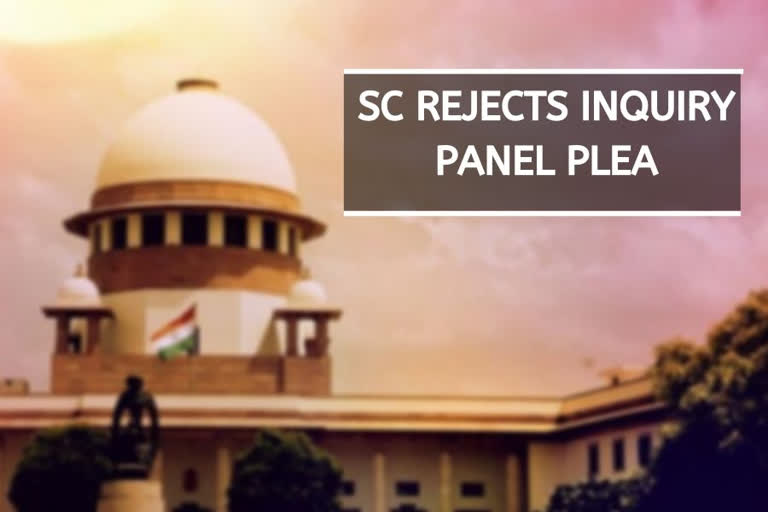New Delhi: The Supreme Court Tuesday refused to set up a committee of a retired apex court judge to inquire into the allegations of police atrocities against students and incidents of violence during protests against the Citizenship Amendment Act (CAA) at Aligarh and Jamia universities here, and asked the petitioners to approach respective high courts with their grievances.
The apex court said the high courts, after looking into all the aspects and hearing both sides, may appoint fact-finding committees to inquire into the allegations and they would also pass orders with regard to arrest and medical treatment to those injured in the protests.
"Having regard to the nature of disputes and the vast area through which these incidents are said to have occurred, we find that it would not be feasible to appoint a single committee to go into the matters in various states," said a bench comprising Chief Justice S A Bobde and Justices B R Gavai and Surya Kant.
The bench noted in its order that each fact alleged by the petitioners has been disputed by the Centre, which through Solicitor General Tushar Mehta told the court that not a single student has been arrested so far in these incidents at Aligarh Muslim University (AMU) and Jamia Millia Islamia here.
The bench said that two main concerns raised by the petitioners have been that students were "indiscriminately arrested" and they were injured and not getting proper medical treatment.
Mehta, however, said that only two students from AMU have been hospitalised and they are being treated at the university hospital itself.
His arguments that police had not caused any injury to the students was contested by the petitioners who alleged that several students were undergoing treatment for broken limbs.
Taking note of the allegations and counter-allegations, the bench said, "We are confident that the Chief Justices (of various high courts) will call upon for inquiry, if needed, and appoint appropriate committee including a former judge of the apex court or high court after hearing the union of India and respective states."
It added: "High court will be at liberty to pass appropriate order with regard to arrest and medical treatment, if brought to its notice, after verification."
The bench noted that serious grievance has been raised that Vice-Chancellors of universities concerned were being "completely ignored" by police while taking action against students, which was denied by Mehta.
"We are sure that high court will look into all the aspects of the matter after hearing both sides and appoint an appropriate committee for fact-finding," it said.
Mehta told the court that no students have been arrested so far and when they were injured during the protests at Jamia, the police had taken them to hospital and free of cost treatment was provided to them.
"The chief proctor of Jamia was called to identify the students in the hospital. He came, identified the students and took them back with him," he said, adding that rumors were spread that two students had died in the protest.
Regarding protest at AMU, Mehta said, "Proctor of AMU, who is a former IAS officer, gave us (police) in writing that because of rumors, some people, maybe outsiders, may create law and order problem so send the police force."
